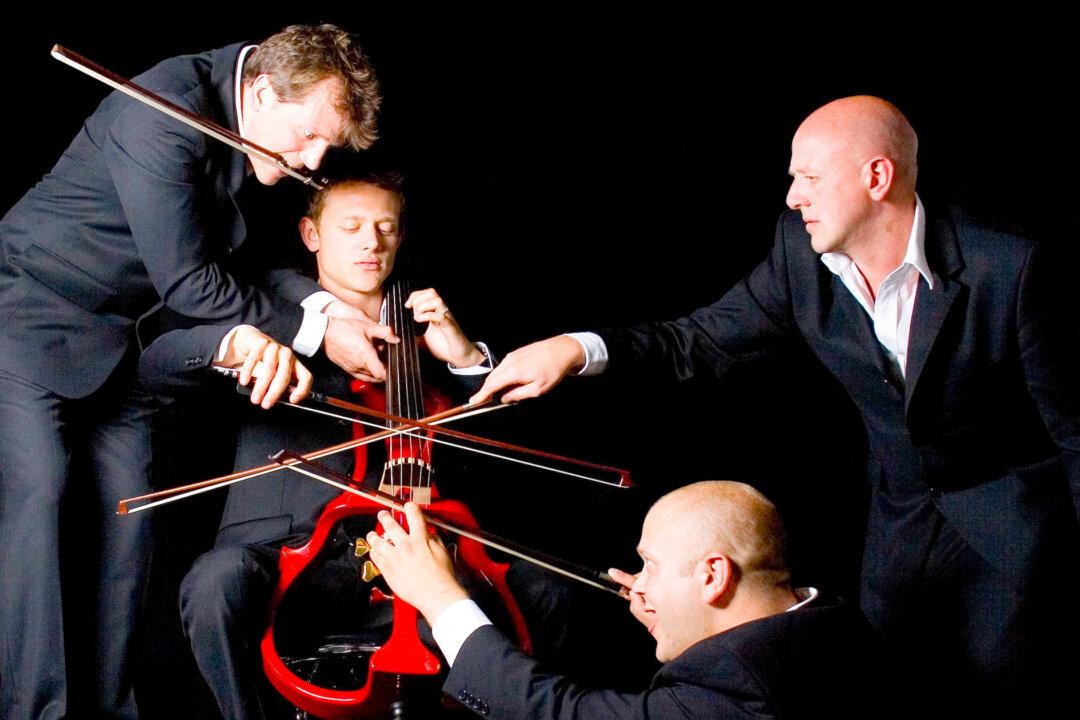Three musical brothers along with their cousin from London, England, pioneered a string quartet with a unique live number in the early 2000s: a rendition of Ravel’s “Boléro,” and the four of them played on just one cello. The clever musical cover has since been wowing audiences the world over, even to this day.
Six-string electric violin player Ralph Broadbent started Stringfever in 2004 with his older brother, bandleader and lead violinist Giles, his cousin, viola player Graham, and his younger brother, five-string electric cello player Neal, who can also beatbox.





